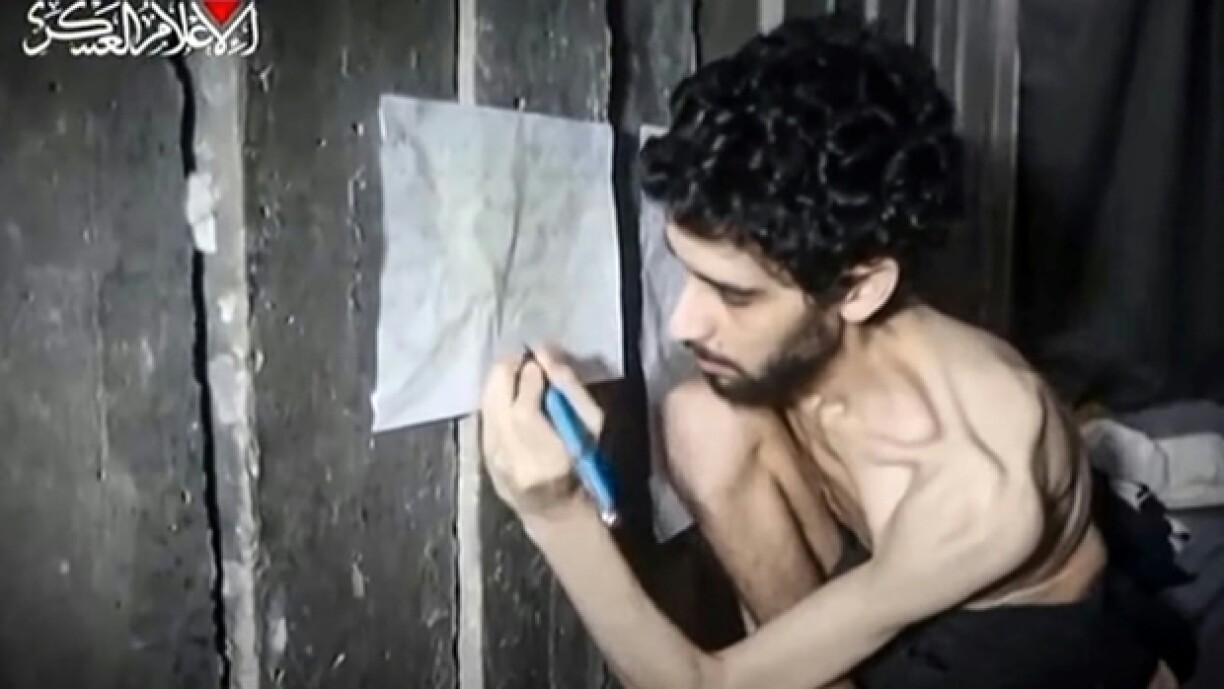
Israel stated on Monday that the plight of hostages held in Gaza should be placed at the top of the global agenda.
This follows the release of videos by Palestinian militants showing visibly emaciated hostages, further fuelling concern for their lives after 22 months in captivity. In a press conference ahead of a UN Security Council session on the issue, Israeli Foreign Minister Gideon Saar said that the world must put an end to the phenomenon of civilian abductions, adding that it must become a central focus of international attention.
Of the 251 hostages taken during Hamas’s attack on Israel in October 2023, 49 are still believed to be held in Palestinian territory, according to Israeli authorities. This figure includes 27 individuals the Israeli military considers to be dead.
The UN meeting was called after Hamas, together with Palestinian Islamic Jihad, released three videos showing hostages Rom Braslavski and Evyatar David appearing weak and severely undernourished. The footage sparked strong emotional reactions across Israel.
Israeli Prime Minister Benjamin Netanyahu is facing growing international pressure to end the war. On Sunday, he said he was “shocked” by what he described as “horrifying footage of our boys”, claiming the videos proved Hamas had no real interest in a negotiated agreement. The images, he said, had only strengthened his resolve to defeat Hamas.
According to Israeli media reports, Netanyahu aims to secure the release of all remaining hostages in Gaza within the week, potentially through a military victory over Hamas. An anonymous official indicated that a final decision on intensifying the military campaign is expected later this week.
However, the idea has been met with criticism, notably from families of the hostages themselves. They warned that escalating the conflict could further endanger the lives of those already in critical condition.
Meanwhile, Netanyahu has announced that he has asked the International Committee of the Red Cross (ICRC), which oversaw previous hostage releases during temporary ceasefires, to provide Israeli hostages with food and medical care.
In response, Hamas’s military wing has reportedly expressed willingness to grant the Red Cross access to the hostages, but only in exchange for sustained humanitarian access to food and medicine for the entire Gaza Strip. UN experts continue to warn of a deepening famine in the war-torn region.